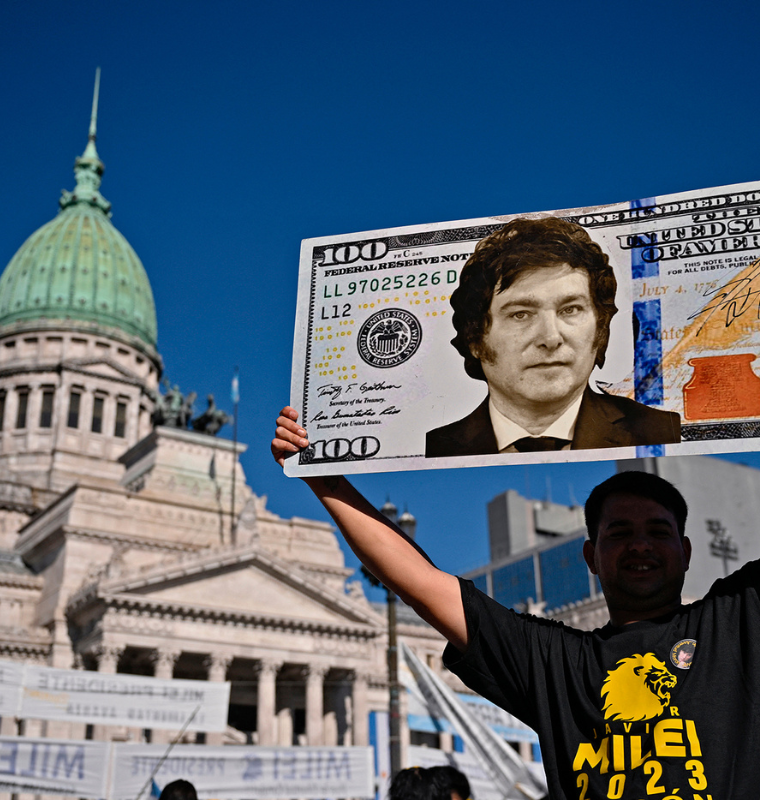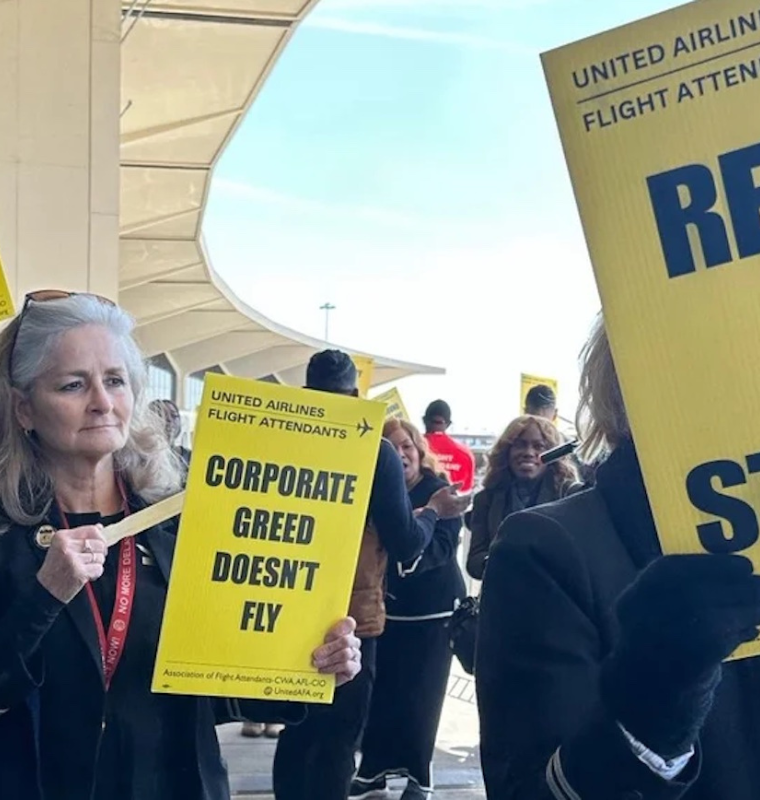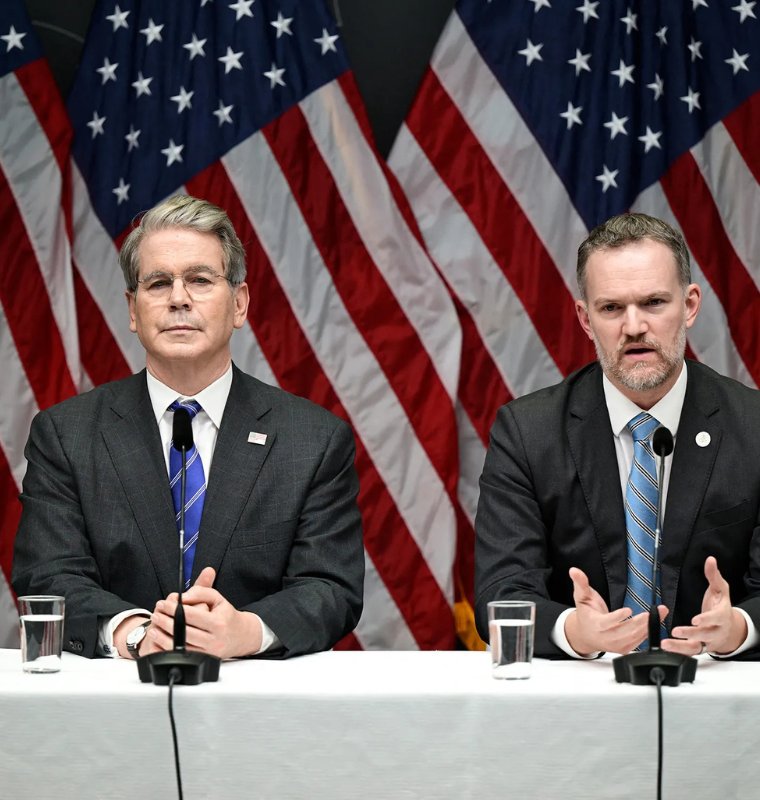Trump Officials Stand Firm on Tariffs Despite Court Ruling, Vow They're Here to Stay
Trump Officials Stand Firm on Tariffs Despite Court Ruling, Vow They're Here to Stay
By
Rachel Steinberg
Last updated:
June 2, 2025
First Published:
June 2, 2025

Photo: Yahoo
Tariffs Take Center Stage in Legal Showdown, But Trump Allies Say Policy Will Prevail
President Donald Trump’s signature tariff policy is facing legal turbulence—but his top economic officials say the administration isn’t backing down.
On Sunday, Commerce Secretary Howard Lutnick stated unequivocally, “Rest assured, tariffs are not going away,” during an interview on Fox News Sunday. His remarks come just days after the U.S. Court of International Trade ruled that Trump exceeded his legal authority when he implemented broad-based tariffs on imports under the International Emergency Economic Powers Act (IEEPA).
The court concluded that the IEEPA was never intended to serve as a blanket tool for imposing tariffs in response to trade deficits. Trump had previously declared that the persistent U.S. goods trade deficit—surpassing $1 trillion over the past decade—constituted a national emergency, triggering the use of the IEEPA to justify his tariff strategy.
Temporary Legal Reprieve, but More to Come
Shortly after the lower court ruling, the Trump administration filed an emergency appeal, and the federal appeals court granted a temporary stay. While this pause gives the administration some breathing room, a longer legal battle now appears inevitable. Many legal analysts believe the case could end up before the U.S. Supreme Court, injecting deep uncertainty into one of Trump’s cornerstone economic strategies.
National Economic Council Director Kevin Hassett expressed confidence during an appearance on ABC’s This Week:
“We are very confident that the judges will uphold this law. That’s Plan A—and we’re confident that’s all we’ll need.”
However, Hassett acknowledged that should the courts ultimately block the tariffs, the administration has “alternative routes” to sustain its trade strategy, though he declined to elaborate on what those might be.
“There are other statutes and mechanisms that allow us to enforce fair trade without violating the court’s interpretation,” he said, hinting at obscure economic laws still on the books.
A Legal and Economic Crossroads
Trump’s tariff plan—introduced in April—has already caused significant global economic reverberations. Major U.S. trading partners, including the European Union, China, and Mexico, responded with retaliatory tariffs on American goods. Estimates from the Peterson Institute for International Economics suggest these tit-for-tat tariffs could impact up to $450 billion in global trade and shave 0.3% to 0.5% off U.S. GDP growth annually if prolonged.
Despite this, Trump doubled down on Truth Social over the weekend, warning of dire consequences if the courts reject his authority:
“If the courts somehow rule against us on tariffs, they would allow other countries to hold our Nation hostage with their anti-American tariffs,” he posted. “This would mean the economic ruination of the United States of America!”
Wider Implications of the Ruling
Commerce Secretary Lutnick emphasized that the broader implications of the court’s interpretation of IEEPA could be damaging far beyond the issue of tariffs.
“A narrow reading of IEEPA could undermine every strategic economic measure we take—sanctions, embargoes, financial controls,” he explained during a recent deposition.
This is particularly significant in a time when the U.S. is relying on economic instruments to address foreign policy issues with countries like Russia, Iran, and North Korea.
What Comes Next?
While the temporary stay means Trump’s tariffs remain in effect—for now—the longer-term legality remains unsettled. Legal scholars are split on whether the conservative-leaning Supreme Court would side with the administration, especially as judicial precedent around economic emergency powers remains murky.
In the meantime, Trump's advisers are working behind the scenes to prepare contingencies, promising that the administration will not cede ground in its push for what it calls “reciprocal trade.”
“We will find a way,” Hassett reaffirmed. “This fight isn’t over—not by a long shot.”
Popular articles
Subscribe to unlock premium content
Fashion Waste and Sustainability in Fast Fashion Are Forcing a Global Industry Reboot

The Rise and Fall of Argentina’s Economy Reflects a Cycle of Promise and Crisis

Vietnam’s Manufacturing Boom Is No Accident and It’s Just Getting Started

Fashion Waste and Sustainability in Fast Fashion Are Forcing a Global Industry Reboot

The Rise and Fall of Argentina’s Economy Reflects a Cycle of Promise and Crisis

Fashion Waste and Sustainability in Fast Fashion Are Forcing a Global Industry Reboot









